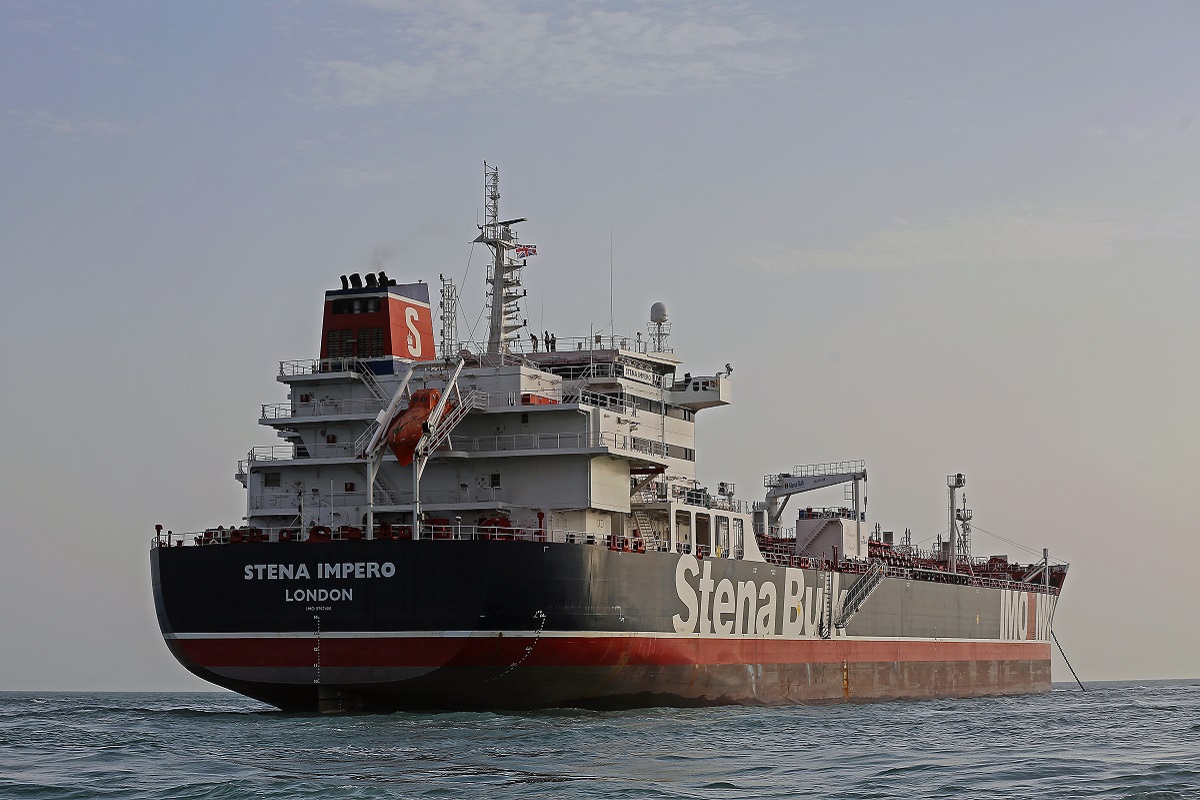At a crossroads
The United Kingdom’s economy has encountered a challenging phase, with consecutive monthly declines in GDP marking the first back-to-back contraction since the tumultuous days of the Covid-19 lockdowns.
Not that the consequences of the British action were not anticipated by Mr Jeremy Hunt’s foreign office; with the capture of a Britishowned oil tanker in the Gulf, some of their worst fears have been realised.

A picture taken on July 21, 2019, shows the British-flagged tanker Stena Impero anchored off the Iranian port city of Bandar Abbas. Iran warned Sunday that the fate of a UK-flagged tanker it seized in the Gulf depends on an investigation, as Britain said it was considering options in response to the standoff. Authorities impounded the Stena Impero with 23 crew members aboard off the port of Bandar Abbas after the Islamic Revolutionary Guard Corps seized it Friday in the highly sensitive Strait of Hormuz. (Hasan Shirvani / MIZAN NEWS AGENCY / AFP)
The waters of the Strait of Hormuz have become choppier still. The crisis in the Gulf has deepened since Friday with what can be described as Iran’s counter-mobilisation after the seizure by Britain last week of the Iranian-flagged Grace 1 in Gibraltar.
Not that the consequences of the British action were not anticipated by Mr Jeremy Hunt’s foreign office; with the capture of a Britishowned oil tanker in the Gulf, some of their worst fears have been realised. The Stena Impero and its crew of more than 20 are now in the hands of the Iranian Revolutionary Guards. Clearly, the United Kingdom has been unable to protect British shipping going through the waterways of the Strait of Hormuz.
Advertisement
To an extent, the maritime conflict between Iran and Britain has deflected the focus from Brexit and also, of course, the choice of the next Prime Minister. The British insist that they only impounded Grace 1 due to its suspected destination ~ a port in Syria ~ and because the ship was carrying Iranian oil. Whitehall had argued that the European Union sanctions against the regime of Bashir al Assad regime needed to be enforced to uphold the certitudes of international law. Given its circuitous route, there was little doubt that the ship was bound for Syria.
Advertisement
Yet, the fact remains that few previous shipments of oil to Syria have thus far been impounded. Matters had become worse confounded with Spain’s claim that the British had acted under the instructions of the Americans. The Trump administration is trying to freeze all Iranian oil exports as part of its policy of maximum economic sanctions designed to force the Iranians to reopen talks on the nuclear deal signed by Barack Obama in 2015, and binned by the current occupant of the White House.
With the seizure of the British oil tanker, Hassan Rouhani’s Iran has launched its counter-offensive at a critical juncture… when trilateral tensions between the US, Britain and Iran are far from contained. The tanker-versus-tanker conflict is bound to muddy the waters further still. Though Iran’s nuclear proliferation is at the core of the crisis, Britain opposes America’s policy, arguing that it is counterproductive and might only strengthen the hands of hardliners in Tehran. Carl Bildt, the former Swedish prime minister and co-chair of the European Council on Foreign Relations, has mentioned the ambiguities of the British action in Gibraltar ~ “One refers to EU sanctions against Syria, but Iran is not a member of the EU.
And the EU as a matter of principle doesn’t impose its sanctions on others. That’s what the US does.” Is the US nudging Britain into dangerous waters with Iran? The trilateral tension has become ever so murky. In the Iranian perspective, the British action had nothing to do with an EU embargo, and “everything to do” with supporting the US squeeze on Iranian oil exports, the quickest route to bringing the Iranian economy to its knees. Apart from oil, the British crew are now hostage.
Advertisement